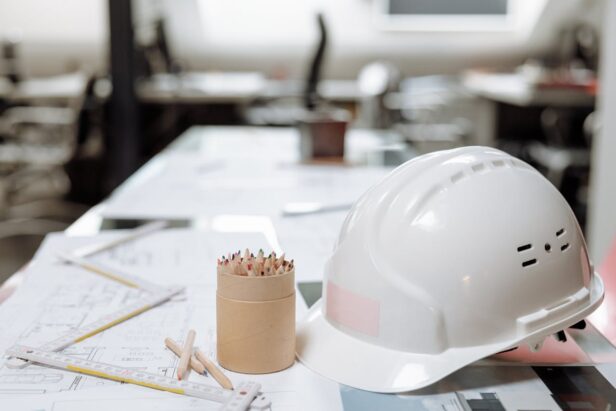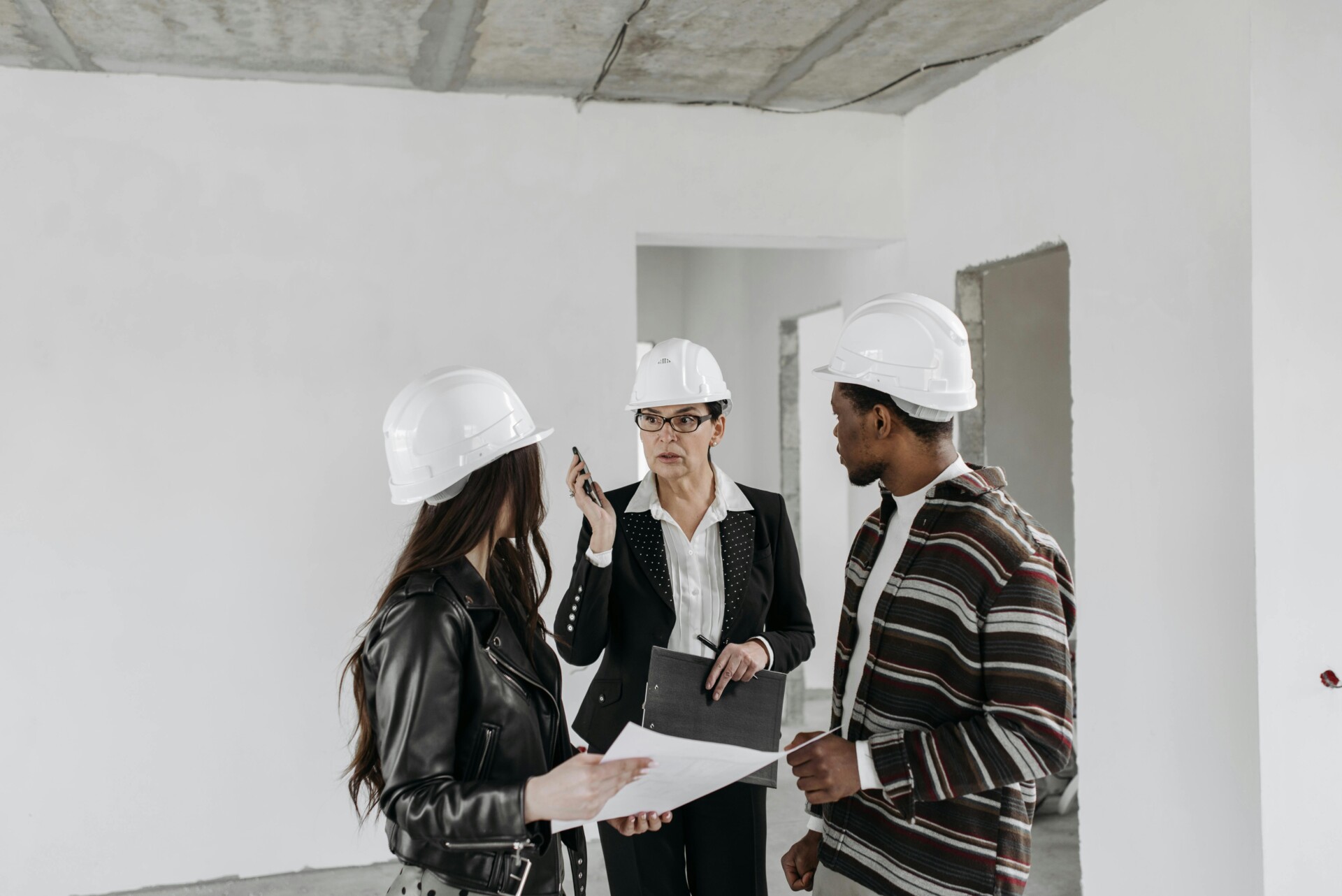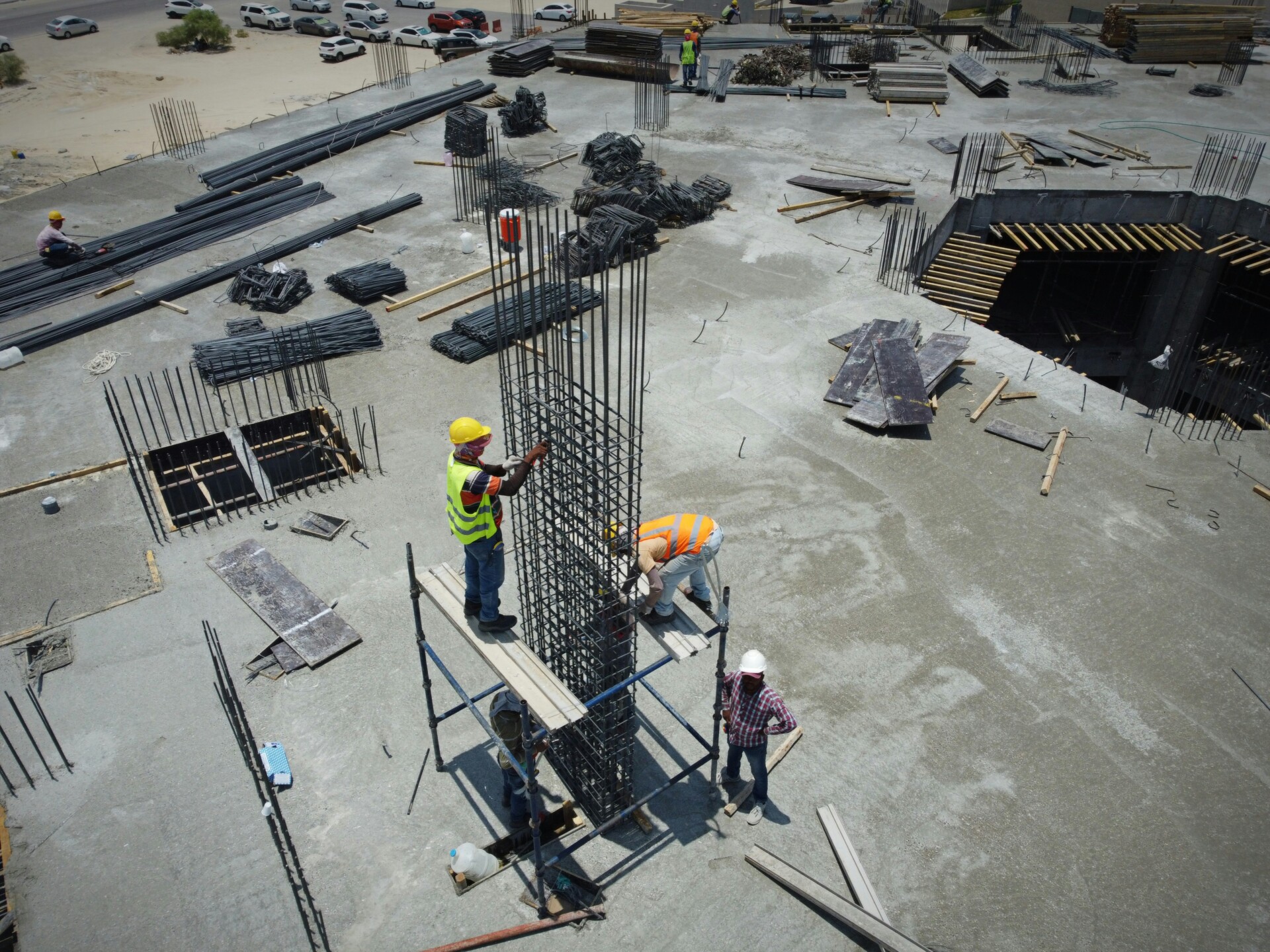San Jose commercial projects alone averaged $78.28 per square foot last year, with budgets stretching from $150,000 to over $1.25 million depending on complexity. Project timelines can extend up to 50 weeks based on scope and market conditions.
Bay Area commercial construction encompasses diverse project types including office buildouts, life science labs, healthcare facilities, hospitality spaces, and retail construction. This guide provides a structured approach to finding, vetting, and working with commercial building contractors in competitive markets like San Jose and the broader Bay Area.
What Services Do Local Commercial Contractors Typically Provide?

Commercial general contractors coordinate comprehensive services that cover every aspect of your project lifecycle. We handle the full scope from initial planning through final handover, managing each phase with the expertise that comes from years of construction experience across diverse commercial sectors.
Preconstruction Planning And Project Development
We start every project with thorough needs analysis to understand your operational requirements and site constraints. During this phase, we develop detailed budgets that account for all labor, materials, and service costs while establishing realistic schedules that align with your business objectives.
Our preconstruction planning includes comprehensive site assessments to identify potential challenges before they impact your timeline or budget. We coordinate with architects and engineers to ensure designs meet both your functional needs and local building requirements, establishing a solid foundation for successful project execution.
Cost Estimating And Budget Management
Accurate cost estimating forms the backbone of effective project planning, and we leverage decades of construction data to provide detailed breakdowns for every aspect of your project. Our estimating process covers materials, labor rates, equipment needs, and service requirements while factoring in current market conditions and regional pricing variations.
We implement tracking systems that monitor costs throughout construction to reduce surprises and maintain budget control. Regular cost reporting keeps you informed of expenditures against projections, allowing for proactive adjustments when market conditions or project requirements change.
Construction Scheduling And Timeline Coordination
Effective scheduling requires detailed understanding of trade sequencing, material lead times, and permit approval processes. We develop comprehensive schedules that establish clear start and finish dates for each construction phase while building in appropriate buffer time for weather delays and unforeseen conditions.
Our scheduling approach coordinates multiple work streams simultaneously, ensuring optimal resource utilization while maintaining quality standards. We track progress against established milestones and adjust schedules proactively to keep projects moving forward efficiently.
Site Safety And OSHA Compliance
Safety protocols begin before the first worker arrives on site and continue through final closeout. We develop project-specific safety plans that address the unique hazards of your construction environment while ensuring all team members understand and follow established procedures.
Our safety supervision includes regular inspections, documentation of safety meetings, and immediate correction of any hazards that develop during construction. OSHA compliance remains a fundamental requirement, and we maintain current knowledge of all applicable standards to protect both workers and your business interests.
Bid Management And Subcontractor Selection
We coordinate the bidding process by preparing detailed bid packages that clearly communicate project requirements and quality expectations. Our bid management includes qualifying potential subcontractors based on experience, financial stability, safety records, and past performance on similar projects.
Subcontractor selection involves evaluating proposals against established criteria while considering factors like local expertise, schedule availability, and cultural fit with your organization. We maintain relationships with qualified trade partners who understand our quality standards and can deliver consistent results.
Permitting And Regulatory Compliance
Navigating local permitting requirements demands understanding of specific jurisdictional codes and established relationships with regulatory officials. We prepare and submit all required documentation while coordinating with architects and engineers to address any plan review comments or required modifications.
Our permitting process includes tracking approval timelines and maintaining communication with building departments to expedite reviews when possible. We ensure all work meets current code requirements and passes required inspections throughout the construction process.
Procurement And Supply Chain Management
Material procurement begins during preconstruction planning with identification of long-lead items that could impact project schedules. We coordinate with suppliers to secure competitive pricing while ensuring materials meet specifications and arrive when needed for installation.
Our procurement approach includes tracking equipment deliveries, managing material storage on site, and coordinating with trades to ensure smooth handoffs between construction phases. We maintain supplier relationships that provide reliable delivery and responsive support when issues arise.
Construction Execution And Quality Control
Active construction includes demolition work, structural modifications, installation of building systems, and completion of interior finishes. We coordinate these activities to minimize disruption while maintaining the quality standards you expect from professional construction.
Quality control involves regular inspections at each construction phase, documentation of work completion, and prompt correction of any deficiencies before they impact subsequent work. Our approach ensures that every system functions properly and meets design specifications.
Vendor Coordination And Technology Integration
Modern commercial spaces require coordination with specialized vendors for IT infrastructure, audiovisual systems, security equipment, and furniture installation. We manage these relationships to ensure seamless integration with construction activities and proper coordination of access requirements.
Technology integration demands careful planning of infrastructure requirements during construction to avoid costly retrofits later. We coordinate with your IT team and vendors to establish proper rough-ins and ensure systems can be commissioned efficiently upon completion.
Post-Construction Closeout And Support
Project closeout includes comprehensive final inspections to verify all work meets specifications and local code requirements. We coordinate final walkthroughs with your team to address any remaining items and ensure you understand all building systems and maintenance requirements.
Our closeout process includes compilation of warranties, operating manuals, and as-built drawings that document the completed construction. We provide ongoing support during the initial occupancy period to address any questions or minor adjustments needed as you settle into your new space.
These comprehensive services support diverse project types including corporate offices, retail environments, hospitality facilities, medical offices, life science laboratories, and tenant improvement projects. Each project type brings specific requirements that we address through our systematic approach to commercial construction management.
How Should I Vet Commercial Building Contractors Near Me?
Successful contractor selection follows a systematic approach that moves from initial research through detailed evaluation. We recommend starting with a comprehensive review of local firms to understand how their services align with your project requirements and organizational culture.
Begin by researching contractors who specialize in your project type and market sector. Construction teams vary significantly in their expertise areas, from tenant improvements to ground-up development. Match their capabilities to your specific needs, whether that involves life science buildouts, hospitality spaces, or corporate office environments.
Essential Credentials And Documentation Review
Contractor credentials form the foundation of your evaluation process. Verify active licensing through your state’s contractor licensing board, confirming they hold appropriate classifications for commercial work. General contractor licenses typically require passing examinations, maintaining insurance coverage, and demonstrating financial responsibility.
Professional certifications add credibility to a contractor’s profile. Look for memberships in organizations like the Associated General Contractors or specialized certifications in areas like OSHA safety management. These affiliations demonstrate commitment to industry standards and ongoing professional development.
Online reviews provide insight into contractor performance, but approach them with appropriate context. Focus on patterns rather than isolated complaints, and consider the reviewer’s project similarity to yours. Commercial clients often have different perspectives than residential customers.
Portfolio Review And Reference Verification
A contractor’s portfolio reveals their construction capabilities and project experience. Request examples of similar projects in scope, complexity, and market segment. Pay attention to project timelines, budget ranges, and any unique challenges they navigated successfully.
Reference calls provide direct insight into contractor performance. Contact at least three recent clients, focusing on projects completed within the past two years. Ask specific questions about adherence to schedules, budget management, problem-solving approach, and overall communication effectiveness.
Site visits to completed projects offer valuable perspective on workmanship quality and attention to detail. When possible, schedule visits to active job sites to observe safety protocols, site organization, and team coordination in real-time.
Team Evaluation And Communication Assessment
The project manager and superintendent assigned to your project directly impact outcomes. Evaluate their experience with similar commercial projects, understanding of local building codes, and familiarity with permitting processes in your jurisdiction.
Communication practices reveal how contractors manage project coordination and stakeholder relationships. Assess their responsiveness during the vetting process, clarity in presenting project information, and willingness to address concerns thoroughly. Effective contractors maintain transparent pricing structures and provide detailed schedule breakdowns.
Subcontractor relationships indicate a contractor’s ability to manage complex projects efficiently. Strong contractors maintain consistent relationships with qualified trades, ensuring reliable scheduling and quality control throughout construction phases.
Safety records provide critical insight into contractor operations. Review their OSHA compliance history, safety training programs, and incident reporting procedures. Contractors with strong safety cultures typically demonstrate better overall project management capabilities.
Cultural fit between organizations often determines project success beyond technical capabilities. Consider how well the contractor’s approach aligns with your decision-making processes, communication preferences, and project management style.
What Does The Commercial Construction Process Include From Start To Finish?

We approach commercial construction through five distinct phases that build upon each other systematically. Each phase has specific objectives and deliverables that set up the next stage for success.
Preconstruction Planning
We begin every project with comprehensive site assessments to identify conditions that could impact construction. These evaluations examine soil conditions, utility access, traffic patterns, and environmental factors. Our team conducts thorough feasibility studies to confirm the proposed design aligns with site constraints and local regulations.
Design development support involves working closely with architects and engineers to refine plans while maintaining constructability. We provide value engineering recommendations that can reduce costs without compromising quality. Risk identification happens early through detailed reviews of drawings, specifications, and project requirements.
Budget establishment includes detailed cost estimates based on current market conditions and material pricing. We develop realistic schedules that account for permit approval timelines, material delivery lead times, and coordination between trades. These preconstruction activities typically represent two to four weeks of the total project timeline but prevent costly changes during construction.
Procurement Management
We source materials, equipment, and subcontractors through a structured qualification process. Our procurement team maintains relationships with trusted suppliers who meet quality standards and delivery commitments. Subcontractor selection involves evaluating technical capabilities, safety records, and capacity to handle the required scope.
Long-lead items receive priority attention in our procurement schedule. Custom millwork, specialized mechanical equipment, and architectural fixtures often require extended manufacturing periods. We track these items proactively to prevent schedule delays and coordinate delivery timing with construction sequences.
Supply chain coordination ensures materials arrive when needed without creating storage problems on site. We manage vendor relationships to maintain consistent quality and delivery performance throughout the project duration.
Permitting And Code Compliance
We secure all required approvals from local jurisdictions before beginning construction work. Permit applications include detailed drawings, specifications, and supporting documentation that demonstrate compliance with building codes. Our team manages the submission process and coordinates with building officials to address questions or required revisions.
Code compliance verification happens throughout the design review process to prevent issues during construction. We coordinate required inspections at appropriate project milestones to maintain approval status. Fire department, health department, and utility company approvals are secured as needed based on project requirements.
Permit processing typically adds two to six weeks to project schedules depending on jurisdiction complexity and project scope. We build these timelines into our overall project schedule to prevent delays.
Construction Execution
We manage all construction activities through detailed coordination between trades and suppliers. Demolition work begins once permits are secured and site safety protocols are established. Site preparation includes temporary facilities, material storage areas, and access routes for construction operations.
Structural changes proceed according to approved drawings with continuous quality control inspections. Our superintendents coordinate mechanical, electrical, and plumbing systems installation to prevent conflicts between trades. Finish work follows systematic sequences that protect completed areas while maintaining productivity.
IT, A/V, security, and furniture vendor coordination ensures seamless integration of technology systems with construction activities. We establish clear handoff procedures between construction trades and specialty vendors to maintain project momentum. Quality control measures include regular inspections, material testing, and documentation of all work performed.
Safety protocols follow OSHA standards with daily site inspections and regular safety meetings. We maintain detailed records of all safety activities and coordinate with subcontractors to ensure consistent safety performance across all trades.
Project Closeout
Final inspections involve systematic review of all completed work against approved plans and specifications. We coordinate with building officials for occupancy permits and utility companies for final service connections. Construction closeout is a multi-step process that involves ensuring everything is completed from documentation to final payment to meet all contractual obligations.
Client walkthroughs identify any remaining items that need attention before final acceptance. We document all walkthrough findings and coordinate completion of punch list items through our subcontractor network. System training ensures facility operators understand equipment operation and maintenance requirements.
Formal handover includes delivery of all required documentation, warranties, and operational manuals. Post-completion support addresses any issues that arise during the initial occupancy period and maintains our commitment to project success beyond substantial completion.
What Drives Cost And Schedule For Local Commercial Projects?
Understanding project economics requires examining both financial drivers and scheduling constraints that impact commercial construction. We see specific patterns emerge in markets like San Jose and the Bay Area, where project complexity, local regulations, and skilled labor availability create unique cost and timeline dynamics.
Scope definition serves as the foundation for accurate budgeting. Structural modifications, electrical system upgrades, and specialty finishes drive costs significantly higher than basic tenant improvements. When we evaluate projects requiring seismic upgrades or life science lab installations, material and labor requirements can double compared to standard office buildouts.
Primary Cost Factors
Labor represents the largest variable cost component in Bay Area construction. Specialized trades like electricians and plumbers command premium rates, particularly for complex installations involving cleanroom environments or advanced HVAC systems. Union labor markets in San Jose typically add 15-25% to base labor costs compared to non-union alternatives.
Material specifications and procurement timing directly impact project budgets. Custom architectural elements, high-performance glazing systems, and specialized equipment for healthcare or laboratory environments require extended lead times and higher unit costs. We coordinate early procurement for these long-lead materials to avoid schedule compression penalties.
Permits and fees vary substantially across Bay Area jurisdictions. San Jose commercial building permits typically range from $15,000 to $75,000 depending on project scope, while specialized facilities may require additional environmental or seismic review fees. Development impact fees can add $8-12 per square foot to overall project costs.
Schedule Influences
Project size creates proportional impacts on construction duration. Standard office tenant improvements spanning 5,000-10,000 square feet typically require 16-20 weeks from permit approval to occupancy. Larger projects exceeding 25,000 square feet often extend to 35-45 weeks due to phasing requirements and coordination complexity.
Urban construction presents unique scheduling challenges. Material delivery restrictions, limited staging areas, and coordination with adjacent tenants can extend timelines by 10-15% compared to suburban locations. We factor these constraints into early planning to maintain realistic schedule expectations.
According to current market data from construction industry sources, San Jose area projects average approximately $350-450 per square foot for mid-rise commercial construction, reflecting the region’s premium labor and material costs.
Local Market Context
San Jose commercial projects typically range from $150,000 for basic tenant improvements to $1.25 million or more for comprehensive buildouts or specialized facilities. The regional average of $78.28 per square foot reflects tenant improvement work, while ground-up construction commands significantly higher rates.
Timeline expectations align with project complexity. Simple office refreshes may complete within 12-16 weeks, while laboratory or medical facility buildouts requiring specialized systems often extend to 40-50 weeks. We use detailed scope analysis and early subcontractor engagement to refine these estimates for each specific project.
Schedule compression becomes costly when clients request accelerated delivery. Overtime premiums, expedited material delivery, and additional supervision can increase project costs by 15-30%. We recommend establishing realistic timelines during preconstruction planning to avoid these premium expenses while meeting operational requirements.
Conclusion And Next Steps

Selecting the right commercial building contractors near me requires a methodical approach grounded in clear project objectives. We recommend starting with precise scope definition, realistic budgeting, and achievable timelines that reflect your operational requirements. This foundation enables informed decision-making throughout the contractor selection process.
The vetting process should emphasize credentials verification, portfolio assessment, and transparent pricing discussions. Strong contractors demonstrate local expertise, maintain solid safety records, and provide detailed project schedules. We focus on alignment between your communication style, quality expectations, and our construction approach to ensure seamless project execution from preconstruction through closeout.
Ready to start your commercial construction project? Contact EB3 Construction to discuss your specific requirements and timeline.




